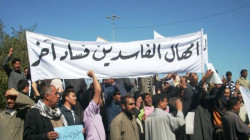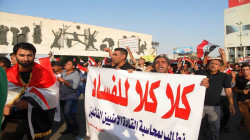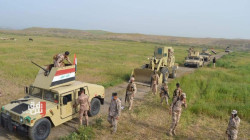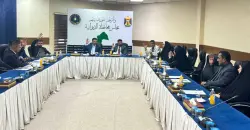Bribery and neglect: how corruption worsened Nineveh's FMD crisis
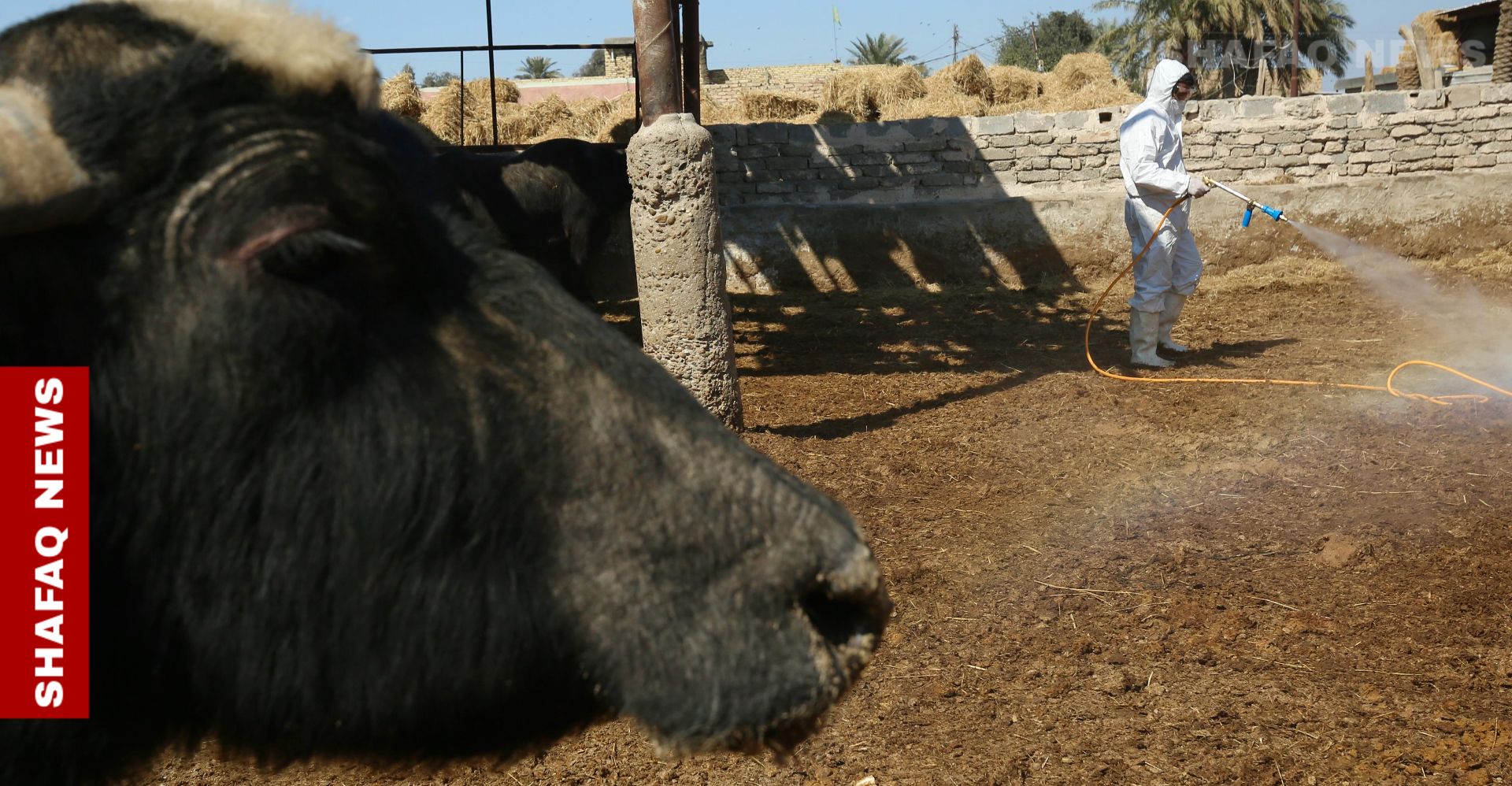
Shafaq News/ A devastating foot-and-mouth disease (FMD) outbreak is ravaging Nineveh province, severely affecting the region's livestock industry and exposing critical gaps in Iraq's veterinary oversight. Originating in Kokjali’s cattle farms, the outbreak has rapidly spread, raising alarms over regulatory failures, illegal livestock imports, and corruption within the sector.
As farmers struggle to contain the epidemic, accusations of negligence and misconduct are mounting against local authorities, fuelling demands for urgent government intervention.
FMD Basics: A Global Threat to Livestock
Foot-and-mouth disease is a highly contagious viral infection affecting cloven-hoofed animals, such as cattle, buffalo, sheep and goats. Caused by the Foot-and-Mouth Disease Virus (FMDV), the disease is marked by fever and painful blisters on the mouth, feet, and teats, leading to lameness and significant milk production loss. While adults often recover, young animals are especially vulnerable, with complications like myocarditis proving fatal.
The disease spreads rapidly through direct contact with infected animals, contaminated feed, equipment, vehicles, and clothing. Its airborne nature allows it to travel long distances, making containment difficult. Iraq has been grappling with FMD outbreaks for decades, with particularly severe incidents during the 1990s and 2012.
The 2012 FMD outbreak was one of the most severe in recent decades, with mortality rates reaching 7.5% for cattle and 4.9% for smaller livestock. Nearly three million animals were affected, resulting in mass culling and economic losses exceeding $50 million. Despite these recurring challenges, Iraq's efforts to control FMD have been hindered by inadequate veterinary oversight and the illegal importation of infected animals.
The Crisis in Nineveh
From 2022 to 2025, Iraq lost over 1.5 million livestock to FMD. The most recent outbreak, which began in early 2025, has been particularly severe in Nineveh. The World Organisation for Animal Health (WOAH) identified the SAT-2 serotype, related to strains from Ethiopia, as the cause. The outbreak has affected multiple species, with 2,091 buffalo infected, 159 dead, 1,926 cattle cases and 255 deaths, 23,878 sheep infected with 817 deaths, and 80 infected goats with 23 fatalities.
The crisis has been exacerbated by a lack of vaccinations. The last immunization campaign in 2021 targeted only serotypes A, O, and Asia1, leaving livestock unprotected against SAT-2. Morbidity rates have exceeded 90%, with high mortality among calves and lambs. Meanwhile, inadequate diagnostic capabilities and delays in vaccine procurement have only worsened the situation.
Kokjali’s farms have been hit hardest, losing over 2,000 cattle in just one week. Muath Haji, a member of Nineveh’s Provincial Council, accused corruption within Iraq’s livestock import sector of fueling the outbreak.
He claimed that traders, officials, and politicians were complicit in the smuggling of infected cattle. “The spread of the disease in Kokjali’s livestock farms reveals a system of bribery, traders as bribes, officials as bribe-takers, and corrupt politicians as middlemen,” Haji stated.
Public anger has escalated, with accusations directed at local politicians, including a sitting Member of Parliament. Protests have erupted, with farmers and residents demanding accountability, alleging that infected cattle were smuggled through the “Martyr Sebhan” checkpoint at Mosul’s entrance from Erbil, and other routes. The lack of oversight at these entry points has exacerbated
the outbreak’s spread.
Official Response: Slow, and Unconvincing
The local government’s response has been met with skepticism. Ahmed Al-Dobardani, head of Nineveh’s Agriculture and Health Committee, confirmed at least 800 cattle deaths in official reports, though local farmers believe the toll is far higher. While Al-Dobardani defended the Veterinary Department’s efforts, such as vaccination campaigns, farm disinfection, and stricter import controls, many farmers remain unconvinced, arguing that authorities were slow to act and ineffective in their response.
Haji criticized the vaccines provided to Kokjali’s farmers, claiming they failed to prevent infections. “The vaccines distributed were ineffective. Some lasted only four to six months, but the outbreak shows they didn’t work. An investigation by the Minister of Agriculture is necessary,” he warned. Farmers also alleged that previous vaccination campaigns involved expired or improperly stored doses, rendering them useless. Despite Iraq allocating $8 million for vaccination efforts in 2019, FMD continues to spread, deepening suspicions of corruption and mismanagement.
Omar Al-Hayali, director of Nineveh Veterinary Hospital, downplayed the severity of the situation, noting that FMD has been endemic in the region since the 1930s. “All necessary measures have been taken, including extensive field inspections, disinfection, and vaccine distribution,” he stated. However, his claims that “media reports are exaggerating the situation” and that “the situation is under control” only fueled public frustration, as many farmers felt the government was more focused on deflecting blame than addressing the crisis.
Too Little, Too Late?
In response to the ongoing crisis, Nineveh’s Health and Agriculture Committee has proposed several key measures, including a temporary ban on livestock imports until the Veterinary Hospital confirms a clear epidemiological status. Authorities have also ramped up enforcement of the Animal Health Law and are working with the Ministry of Agriculture to secure additional vaccines, medications, and logistical support.
Local officials have hired more veterinary doctors and increased oversight of slaughterhouses, implementing stricter protocols for meat transportation. Temporary slaughterhouses will also be established, closely supervised by local authorities. While veterinary teams continue to disinfect affected farms and distribute new vaccines, many farmers remain skeptical, as previous immunization efforts failed to prevent the current outbreak.
The financial toll on livestock farmers, especially in Kokjali, has been devastating. Entire herds have been lost, and many farmers are struggling to recover. Agricultural activist Anas Al-Taie has called for urgent government intervention. “The state cannot abandon livestock farmers. Authorities must compensate them and ensure that corruption does not fuel future outbreaks,” Al-Taie emphasized.
Al-Taie also highlighted the significant investments made by Kokjali farm owners, who suffered heavy losses due to corrupt officials allowing the importation of infected animals. He urged authorities to address the concerns of farmers, provide immediate compensation, and implement long-term strategies to protect livestock from future outbreaks fueled by corruption and neglect.
